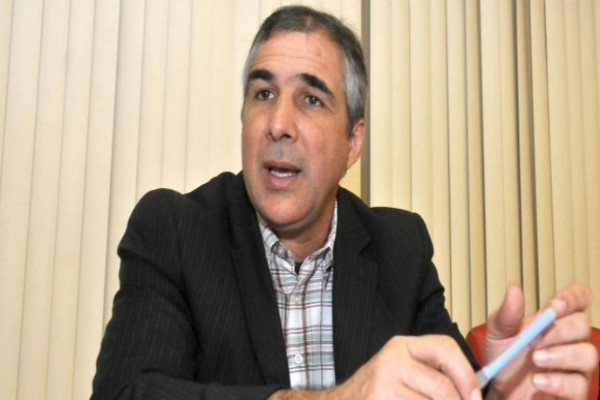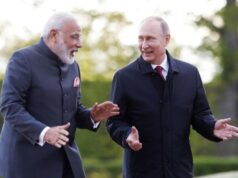
“Our economy is under siege. More than 230 additional restrictions were placed during the Trump administration, many of which remain. This affects everything—from our ability to import goods to conducting financial transactions.”
That was Cuba’s Deputy Prime Minister Dr Eduardo Martinez Diaz, talking to StratNewsGlobal.
In a frank, no holds barred chat, he slammed Cuba’s continued inclusion on the US list of state sponsors of terrorism, calling it “absurd and politically motivated.”
Dr Diaz who was in Delhi on an official visit, said “We are especially grateful for India’s continued support in our fight against the economic and financial blockade imposed by the United States.”
He noted that India has consistently backed Cuba in international forums, notably at the United Nations, where Cuba annually presents a resolution opposing the US embargo.
Despite these constraints, he highlighted Cuba’s achievements in education, healthcare, sports, and social security as proof of the nation’s resilience.
“We are a small island under blockade, yet we have produced world-class results. Imagine what we could achieve without these restrictions,” he said.
India has extended significant humanitarian aid to Cuba in times of crisis—providing emergency medical supplies, raw materials for pharmaceuticals, and support during climate-related disasters like hurricanes.
This long-standing partnership has paved the way for deeper cooperation in key sectors.
“India has the manufacturing capacity, and we have the research and innovation. Together, we can develop large-scale pharmaceutical projects,” he said.
Cuba has pioneered several patented treatments for cancer, diabetes-related complications, and neurological diseases. These could potentially be co-developed or produced in India, offering solutions to millions suffering from chronic ailments.
Cuba is willing to collaborate with Indian hospitals and scientists to tackle rising cancer rates and other public health challenges.
There are also emerging discussions around joint research on skin conditions like vitiligo and psoriasis, using treatments derived from human placenta—a method Cuba has found highly effective.
Indian and Cuban biotech firms have already achieved successful joint outcomes, including technology transfers with tangible social and economic benefits.
In the wake of the COVID-19 pandemic, Cuba became the only Caribbean country to develop and produce its own vaccines.
“We created two vaccines under intense pressure, with limited access to raw materials and global supply chains. Despite these challenges, we vaccinated our entire population,” he explained, adding that these vaccines have been recognized for their safety and efficacy.
“In the field of trade and investment, we can grow together. Food production, sugar, renewable energy, and tourism are areas where India can contribute expertise and capital,” he underscored.
He believes Indian machinery and agricultural know-how could help rejuvenate this vital sector. “We are eager to develop joint ventures in sugar and its derivatives, which have strong global demand.”
Additionally, Cuba is keen to import Indian fertilizers, medicines, and medical devices, citing their high quality and competitive prices.
As part of the outreach to India, visa norms have been simplified.
“You can now apply and pay online. We want to welcome more Indians to experience our culture, nature, and hospitality,” he said, pointing to Indian-managed hotels already operating in Cuba.
Indian firms are engaged in Cuba’s tourism sector, and there is increasing interest in developing infrastructure that caters to Indian travellers.
“We are forming joint working groups to ensure constant interaction. This visit marks the beginning of a more dynamic phase in our bilateral relationship,” Diaz said.
Both sides are now working on a detailed action plan to enhance collaboration, particularly in biotech, pharmaceuticals, and energy.




